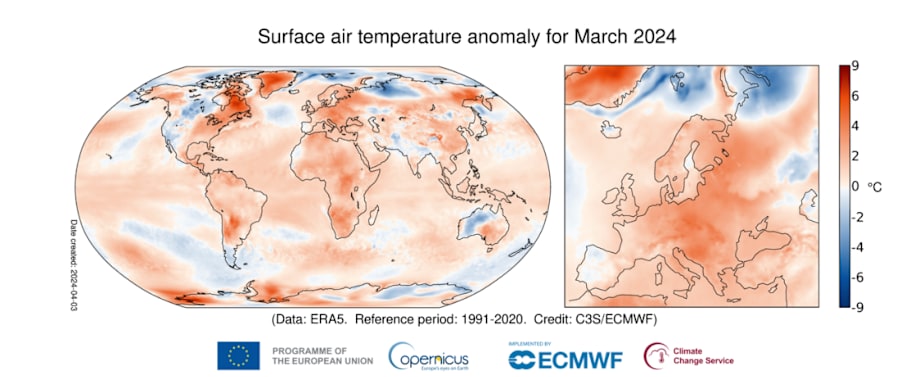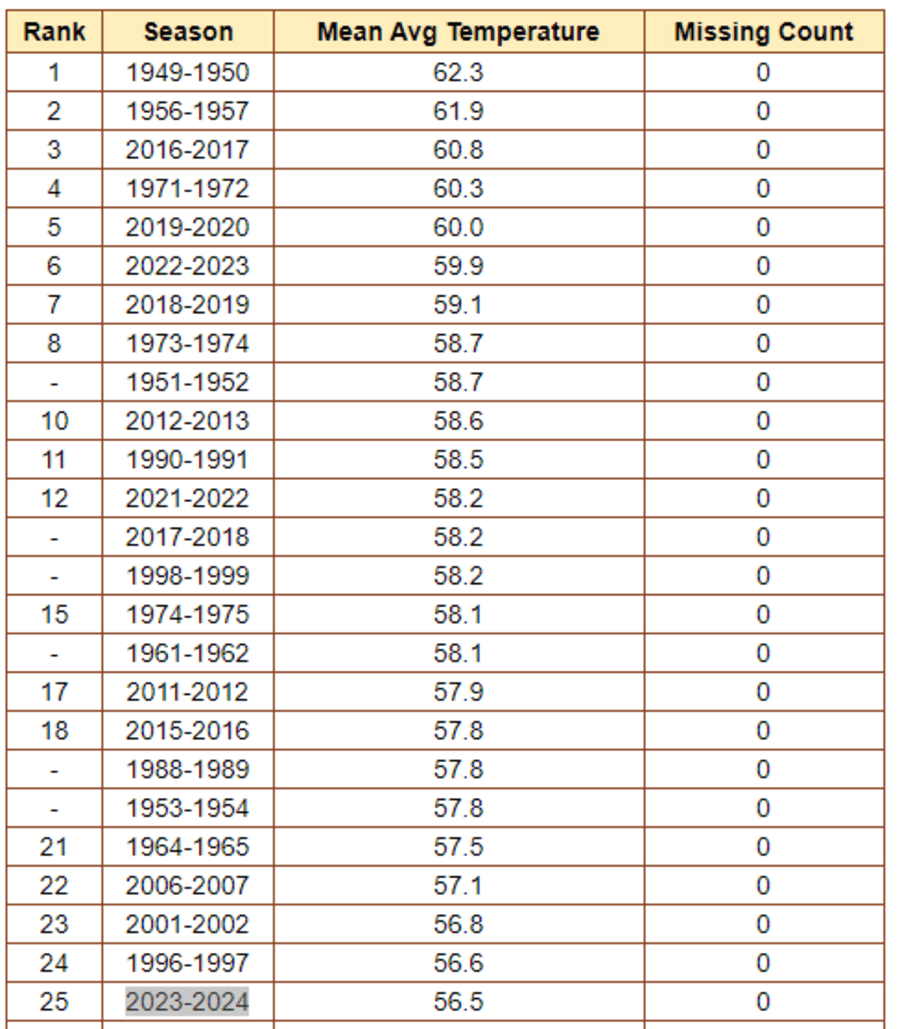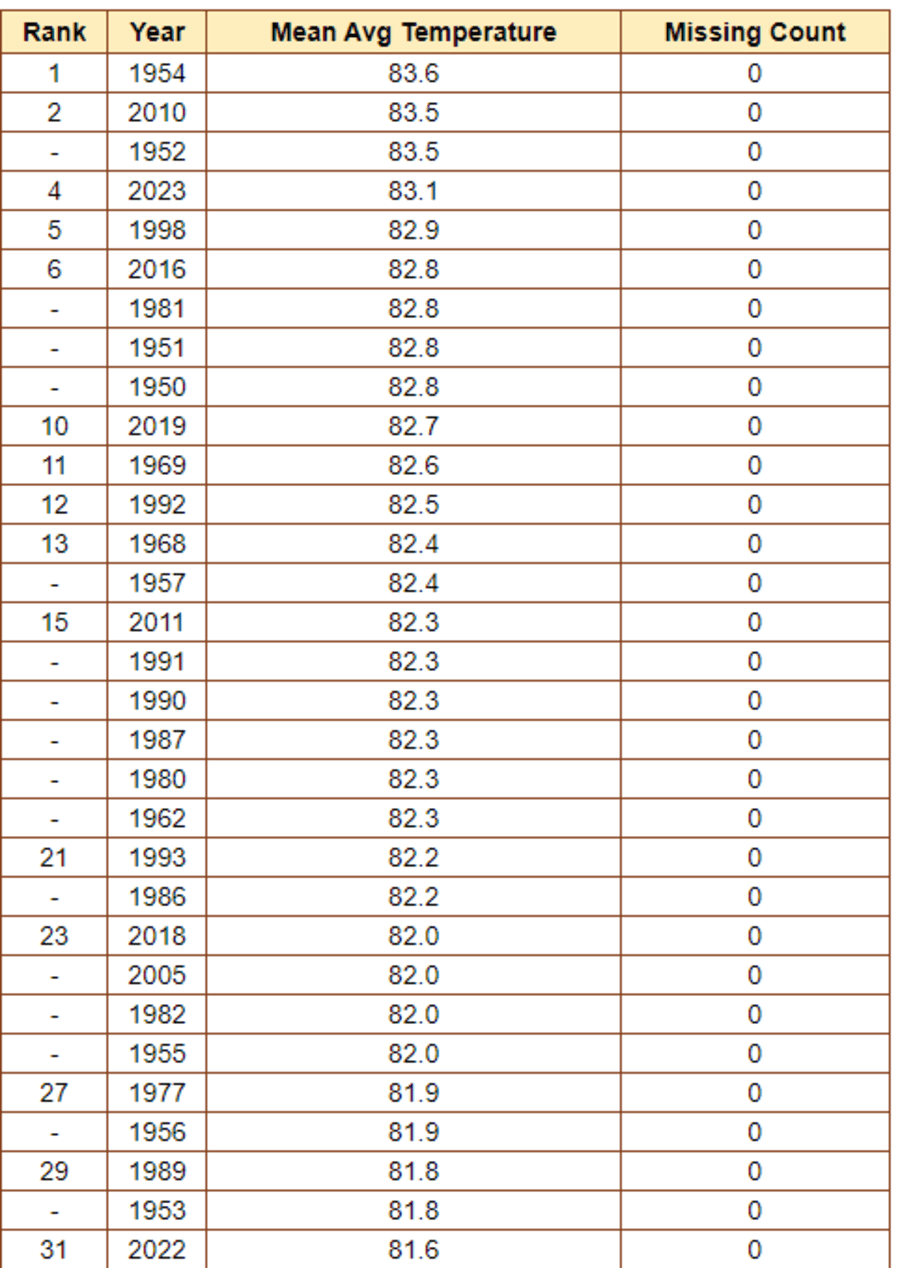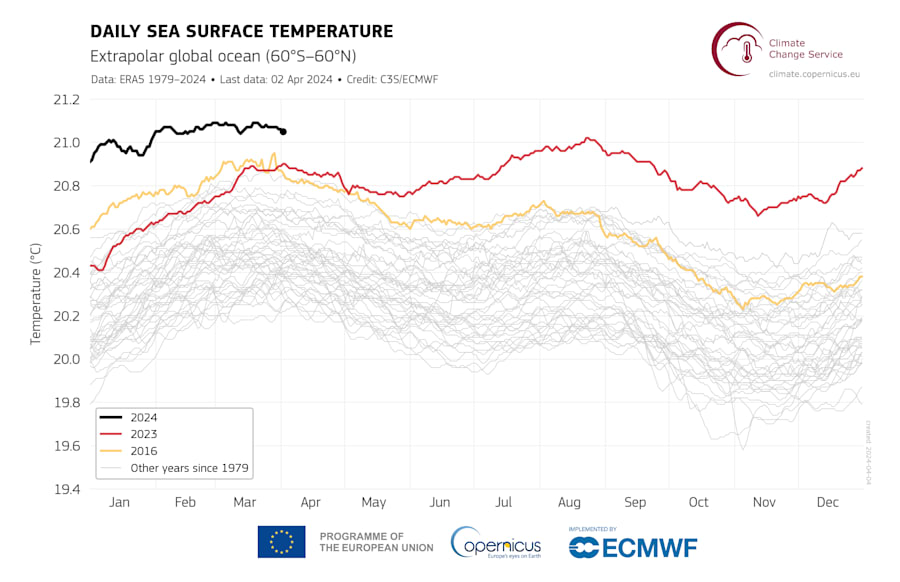Earth’s unrelenting fever continues. Data from the European Union’s Copernicus climate agency confirms March 2024 as the hottest March on record, marking a disturbing 10th consecutive month of global heat surpassing historical highs.
Both air and ocean temperatures reached unprecedented levels, raising concerns about the long-term impacts of climate change.
Ski runs in the Alps were bare on the lower bases as heat spread across parts of Europe that felt the brunt of the heat resulting in its second warmest March on record for the continent, only a marginal 0.02°C cooler than March 2014.
The planet averaged 57.9F degrees for March 2024, exceeding the previous top record from 2016 by a tenth of a degree, according to Copernicus data.

While locations like Jacksonville, Florida, experienced a relatively mild March, the average was three degrees warmer than normal, other areas faced a different reality.
Parts of Europe endured their second-warmest March ever, with the Alps experiencing bare ski runs at lower elevations due to the scorching temperatures.
Jacksonville averaged 65.5° marking its ninth warmest month in March since 1950. February was lower on the list for the same period at 57.6° ranking 35th warmest and January was 29th warmest.

Climatologists emphasize that a single city’s weather doesn’t reflect the global story. They rely on data from a vast network of weather stations to capture the full picture. This comprehensive approach reveals extensive areas experiencing above-average temperatures, including eastern North America, Greenland, parts of South America and Africa, and even Antarctica.
This comprehensive approach helps account for the natural variations and local factors that can influence temperature.
Outside Europe, temperatures were mostly above average over eastern North America, Greenland, eastern Russia, Central America, parts of South America, many parts of Africa, southern Australia, and parts of Antarctica.
The summer of 2023 brought the fourth warmest mean average on record to Jacksonville topping just over 83 degrees according to NOAA Regional Climate Center data.

The relentless heat isn’t just affecting land. The oceans are absorbing a significant amount of heat, reaching record-high temperatures themselves.
This is the first time the Atlantic hurricane season will be primed with so many months of consecutive record heat, which should result in a hyperactive hurricane season.






